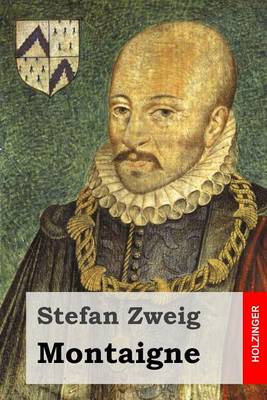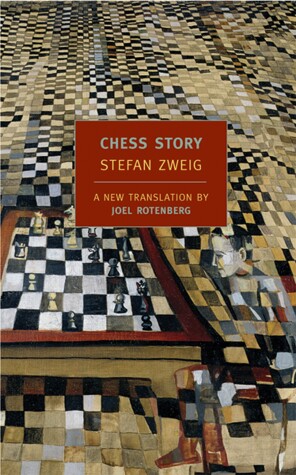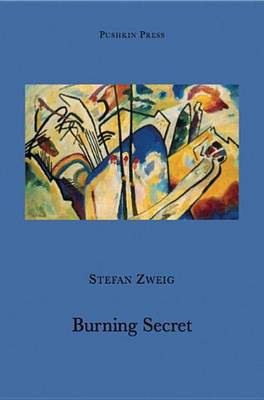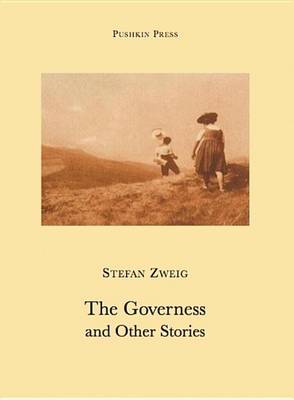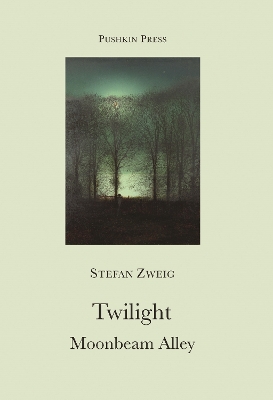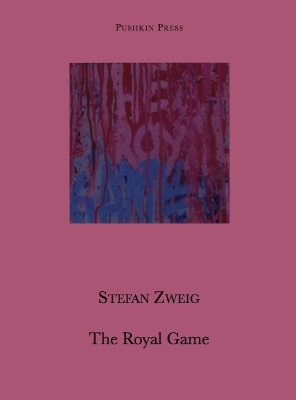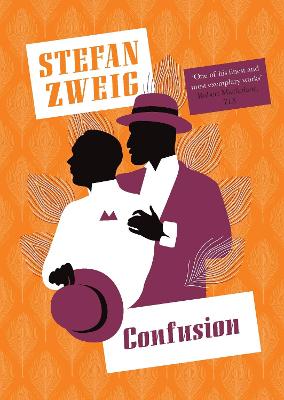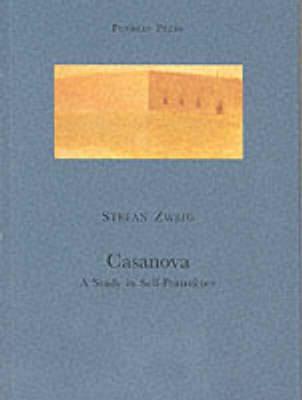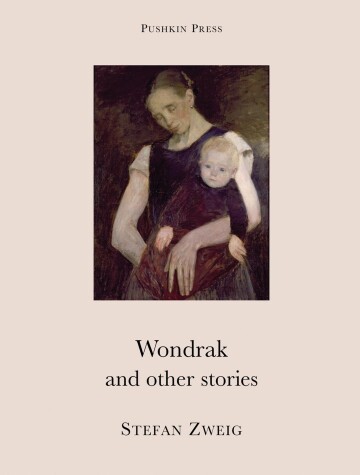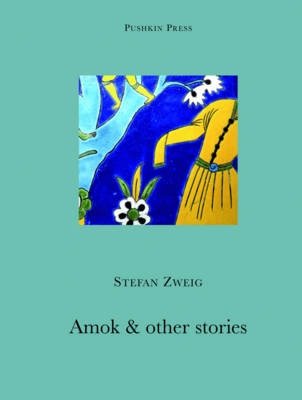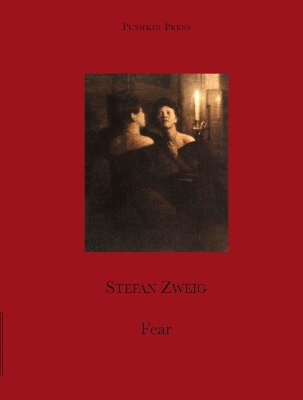Pushkin Collection
12 total works
The main action is set in 1914 in the months leading up to World War I. Anton Hofmiller, an officer in the Austro-Hungarian Army, consents to marry Edith, the crippled daughter of a wealthy local family. Immediately regretting his assent, remorseful yet refusing responsibility, he denies the news of his engagement to his comrades. His weakness of character and his selfish, superficial pity for Edith drive the woman to commit suicide and break her father's heart.
One of the final works Zweig wrote before his suicide, this is both a brilliantly impassioned portrait of a great mind, and a moving plea for tolerance in a world ruled by cruelty.
Travelers by ship from New York to Buenos Aires find that on board with them is the world champion of chess, an arrogant and unfriendly man. They come together to try their skills against him and are soundly defeated. Then a mysterious passenger steps forward to advise them and their fortunes change. How he came to possess his extraordinary grasp of the game of chess and at what cost lie at the heart of Zweig's story.
This new translation of Chess Story brings out the work's unusual mixture of high suspense and poignant reflection.
These four stories illustrate the wide range of Zweig's subject matter dating from quite early in his career as a writer of fiction (The Governess, rooted in a world of strict Edwardian morality), to late (Did He Do It?, almost an English detective story set near Bath, where Zweig lived in exile). In addition The Miracles of Life, set in 16th-century Antwerp during the time of Protestant iconoclasm, and Downfall of a Heart both address the theme of anti-Semitism.
Stefan Zweig (1881-1942) was born in Vienna, into a wealthy Austrian-Jewish family. He studied in Berlin and Vienna and was first known as a poet and translator, then as a biographer. Zweig travelled widely, living in Salzburg between the wars, and was an international bestseller with a string of hugely popular novellas including Letter from an Unknown Woman, Amok and Fear.
In 1934, with the rise of Nazism, he moved to London, where he wrote his only novel Beware of Pity. He later moved on to Bath, taking British citizenship after the outbreak of the Second World War. With the fall of France in 1940 Zweig left Britain for New York, before settling in Brazil, where in 1942 he and his wife were found dead in an apparent double suicide.
Much of his work is available from Pushkin Press.
A French country estate, and a dive bar in the sailors district of a German port provide the backdrop for these two exquisite stories
'Twilight' is the story of a fashionable lady who is banished from Versailles by the king. She tries to make the best of living on her country estate, but although she entertains lovers and friends from Paris, she comes to find it intolerable. Life at court, for all its essential emptiness, was the only thing that gave her existence meaning, and she moves inexorably towards suicide. In 'Moonbeam Alley', a traveller delayed in a French port explores the sailors' quarter. Enticed by a voice singing an aria, to a bar near the harbour, he learns the story of those who run it and frequent it: a tale of violence, unrequited passion, and a marriage that is no true marriage.
Stefan Zweig (1881-1942) was born in Vienna, into a wealthy Austrian-Jewish family. He studied in Berlin and Vienna and was first known as a poet and translator, then as a biographer. Zweig travelled widely, living in Salzburg between the wars, and was an international bestseller with a string of hugely popular novellas including Letter from an Unknown Woman, Amok and Fear.
In 1934, with the rise of Nazism, he moved to London, where he wrote his only novel Beware of Pity. He later moved on to Bath, taking British citizenship after the outbreak of the Second World War. With the fall of France in 1940 Zweig left Britain for New York, before settling in Brazil, where in 1942 he and his wife were found dead in an apparent double suicide.
Much of his work is available from Pushkin Press.
A chess game on a translatlantic liner is the starting point for this heartstoppingly intense study of obsession
On a Cruise ship bound for Buenos Aires, a tantalising encounter takes place between the reigning world chess champion and an unknown passenger. The stranger's diffident manner masks his extraordinary ability to challenge the Grand Master in a game of chess; it also conceals his dark and damaged past, the horror of which emerges as the game unfolds.
Stefan Zweig (1881-1942) was born in Vienna, into a wealthy Austrian-Jewish family. He studied in Berlin and Vienna and was first known as a poet and translator, then as a biographer. Zweig travelled widely, living in Salzburg between the wars, and was an international bestseller with a string of hugely popular novellas including Letter from an Unknown Woman, Amok and Fear.
In 1934, with the rise of Nazism, he moved to London, where he wrote his only novel Beware of Pity. He later moved on to Bath, taking British citizenship after the outbreak of the Second World War. With the fall of France in 1940 Zweig left Britain for New York, before settling in Brazil, where in 1942 he and his wife were found dead in an apparent double suicide.
Much of his work is available from Pushkin Press.
Four unforgettable tales of love, devotion, madness and war
A doctor in the Dutch East Indies torn between his medical duty to help and his own mixed emotions; a middle-aged maidservant whose devotion to her master leads her to commit a terrible act; a hotel waiter whose love for an unapproachable aristocratic beauty culminates in an almost lyrical death;a prisoner-of-war longing to be home again in Russia. These four tragic and moving cameos of the human condition are played out against cosmopolitan and colonial backgrounds in the first half of the twentieth century.
Stefan Zweig (1881-1942) was born in Vienna, into a wealthy Austrian-Jewish family. He studied in Berlin and Vienna and was first known as a poet and translator, then as a biographer. Zweig travelled widely, living in Salzburg between the wars, and was an international bestseller with a string of hugely popular novellas including Letter from an Unknown Woman, Amok and Fear.
In 1934, with the rise of Nazism, he moved to London, where he wrote his only novel Beware of Pity. He later moved on to Bath, taking British citizenship after the outbreak of the Second World War. With the fall of France in 1940 Zweig left Britain for New York, before settling in Brazil, where in 1942 he and his wife were found dead in an apparent double suicide.
Much of his work is available from Pushkin Press.
A bourgeois housewife's affair is discovered, and a blackmailer turns her comfortable life into a nightmare of apprehension
Finding her comfortable bourgeois existence as wife and mother tedious after eight years of marriage, Irene Wagner brings a little excitement into it by starting an affair with a rising young pianist. Her lover's former mistress begins blackmailing her, threatening to give her secret away to her husband, meanwhile her husband seems to offer her numerous opportunities to confess and be forgiven. Irene is soon in the grip of agonizing fear. Written in the spring of 1913, and first published in 1920, this novella is one of Stefan Zweig's most powerful studies of a woman's mind and emotions.
Stefan Zweig (1881-1942) was born in Vienna, into a wealthy Austrian-Jewish family. He studied in Berlin and Vienna and was first known as a poet and translator, then as a biographer. Zweig travelled widely, living in Salzburg between the wars, and was an international bestseller with a string of hugely popular novellas including Letter from an Unknown Woman, Amok and Fear.
In 1934, with the rise of Nazism, he moved to London, where he wrote his only novel Beware of Pity. He later moved on to Bath, taking British citizenship after the outbreak of the Second World War. With the fall of France in 1940 Zweig left Britain for New York, before settling in Brazil, where in 1942 he and his wife were found dead in an apparent double suicide.
Much of his work is available from Pushkin Press.

